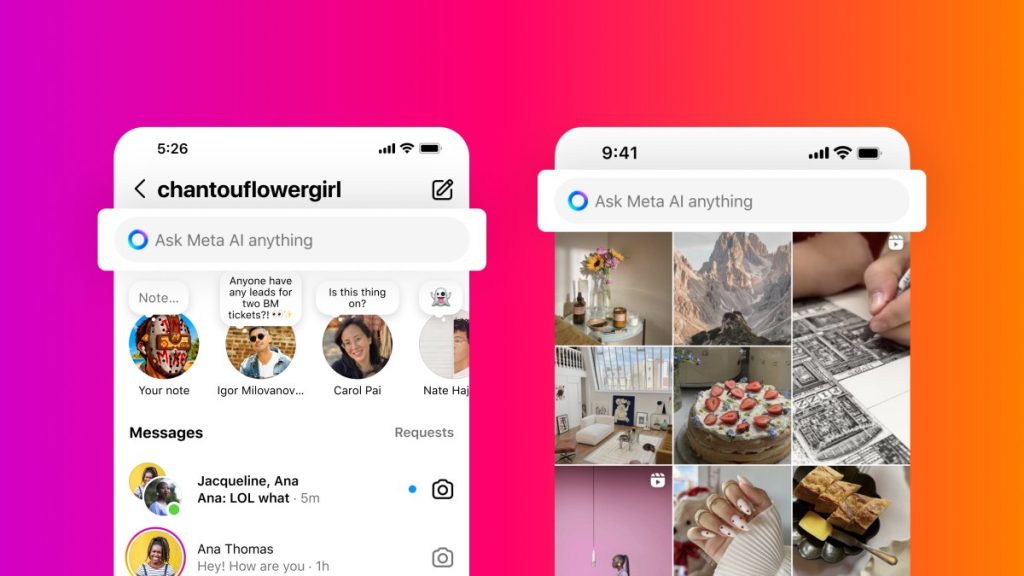Meta Unveils Major AI Upgrades Across Its Platforms
Meta is making significant strides in the world of artificial intelligence, announcing a series of upgrades to its AI services across its major platforms. The company has integrated its latest Large Language Model, Llama 3, into the search bars of Facebook, Messenger, Instagram, and WhatsApp in multiple countries. Additionally, Meta has introduced new features such as faster image generation and access to web search results.
Expanding Meta AI’s Reach
The company is also launching a dedicated website, meta.ai, where users can directly interact with the chatbot. This move highlights Meta’s ambition to position itself as a key player in the rapidly growing generative AI market, competing with popular services like those offered by OpenAI. Mark Zuckerberg boldly claimed that Meta AI might be the “most intelligent AI assistant that you can freely use.”
Meta AI, which was initially rolled out in the U.S. last year, is now expanding to over a dozen countries, including Australia, Canada, Ghana, Jamaica, Malawi, New Zealand, Nigeria, Pakistan, Singapore, South Africa, Uganda, Zambia, and Zimbabwe. However, India, where Meta AI was being tested last week, was notably absent from today’s announcement. The company stated that it will continue to keep Meta AI in test mode in India for the time being.
Enhanced Features and Capabilities
In addition to the existing features, such as writing and recipe suggestions, Meta AI now offers web-related results powered by Google and Bing. The company has also made significant improvements to image generation, making it faster and allowing users to animate images or convert them into GIFs. Users can witness the AI tool modifying images in real-time as they type. Meta has also focused on enhancing the quality of AI-generated photos and improving the AI’s ability to spell out words accurately.
AI Everywhere: Meta’s Approach
Meta is adopting an all-encompassing approach, making Meta AI available in various contexts, including search bars, individual and group chats, and even in the feed. For instance, users can ask questions related to posts in their Facebook feed, such as inquiring about the best time to visit Iceland to see the Northern Lights when they come across a photo of the aurora borealis.
Meta AI is already accessible on Ray-Ban smart glasses, and the company has announced plans to bring it to the Meta Quest headset in the near future.
Challenges and Concerns
While the widespread integration of AI across multiple platforms offers numerous benefits, it also presents potential challenges. AI models can sometimes “hallucinate” and generate random, nonsensical responses, which could lead to content moderation issues. A recent incident reported by 404Media highlighted this concern when Meta AI, while chatting in a parent’s group, claimed to have a gifted and academically challenged child attending a specific school in New York. Meta addressed the issue, stating:
“We share information within the features themselves to help people understand that AI might return inaccurate or inappropriate outputs. Since we launched, we’ve constantly released updates and improvements to our models, and we’re continuing to work on making them better.”
As Meta continues to push the boundaries of AI integration across its platforms, it will be crucial for the company to address these challenges and ensure a seamless and reliable user experience.

1 Comment
Finally, Meta’s stepping up its AI game with Llama 3 – wonder if it’ll outsmart us eventually?